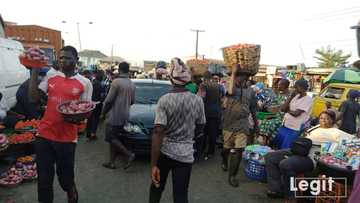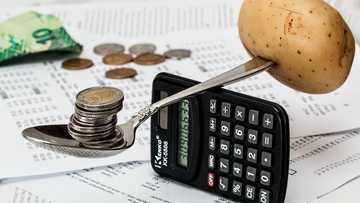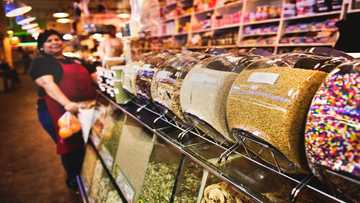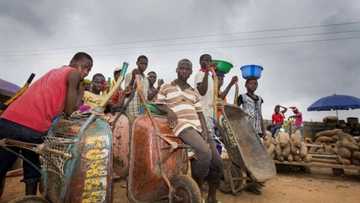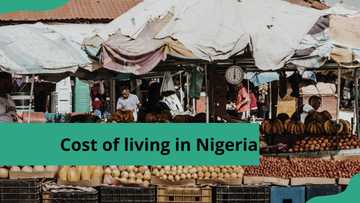Legit.ng weekly price check: Inflation terribly affecting Nigerians - Lagos traders
- Rising insecurity in Nigeria continues to cripple economic activities in the country
- The result so far is the hike in the cost of goods in the market, slow pace of business, inflation and short supply of some goods in the market
- In recent time, Nigeria’s inflation rate grew compared to previous year even as food prices continues to soar
- This week, Legit.ng inquired from traders how inflation is affecting Nigerians and the cost price of goods in recent times
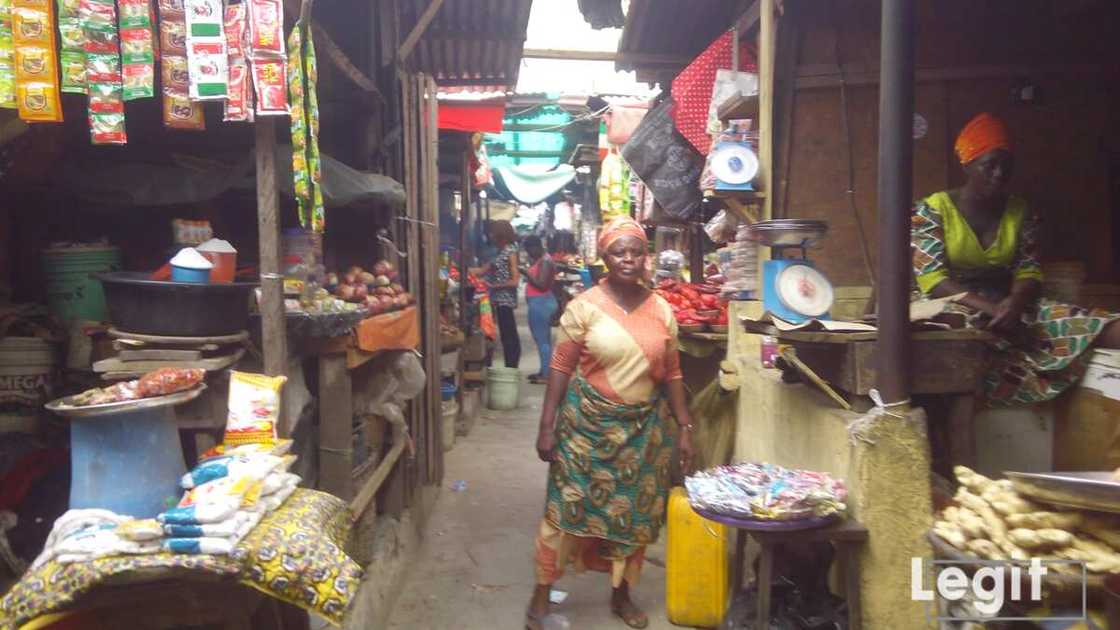
Source: Original
Food prices in Lagos market continue to soar following recent inflation rate. The country’s inflation has been on the rise since the country shuts its land borders in 2019. The situation, however, worsened due to the coronavirus pandemic which affected the global economy and in recent times, due to security issues within the country. This has led to food security challenges in some states within the country.
While the country is yet to recover from the negative impact of the coronavirus pandemic, the rising insecurity rate has led to rise in inflation recently. The result so far is the grappling economy, hike in food prices, short supply of goods in the market and rise in unemployment rate. This issue, according to traders, has led to a significant drop in the purchasing power of buyers.
The rising inflation rate is a worrisome issue on the part of the government and the people at large as the impact is felt daily in the exchange of goods and services. Following this recent development, there has been unrest in some state within the country as crime rate rises further.
Inflation occur when there is an upsurge in the general prices of goods and services due to increased production costs of raw materials and incomes. Also, a surge in demand for products and services can cause inflation as consumers are willing to pay more for product.
When food prices, commodities, and other goods and services rise, the economy would be affected to a large extent; inflation would set in, the cost of living would rise further and the economy would cripple.
This week, Legit.ng visited a market in Lagos state to confirm from traders, how inflation is affecting Nigerians and informing food prices in recent times.
At the market this week, there was continuous rise in food prices; while some are gradually going out of season, others available are in short supply hence their hike in prices.
Goods like rice and beans maintained stability in prices while the cost price of garri fluctuated, others like fruits, perishables and non-edible products are very expensive.
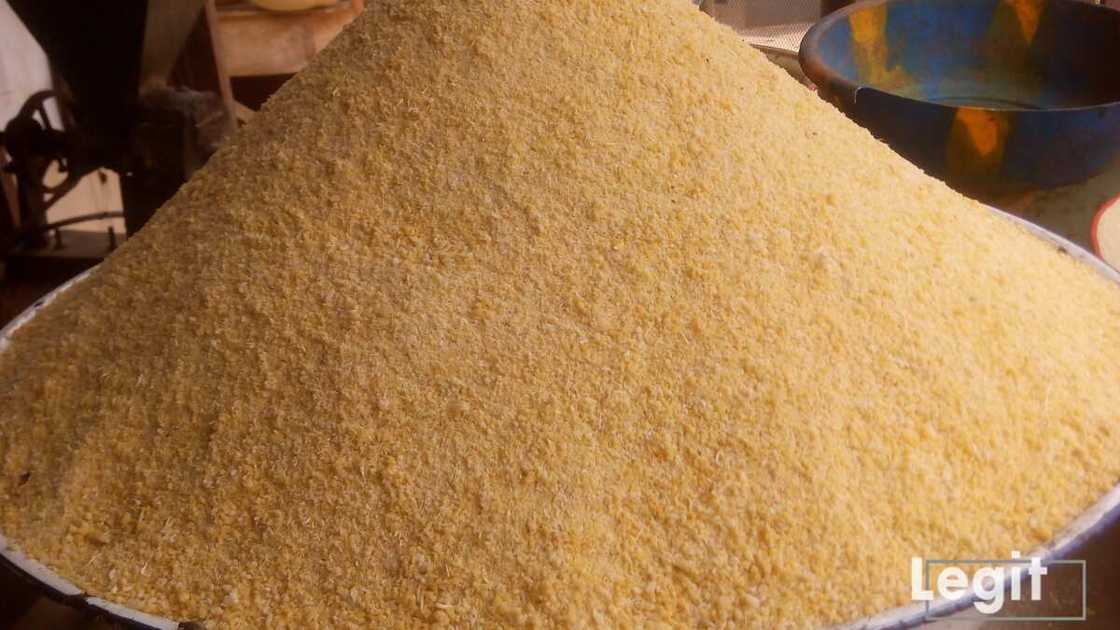
Source: Original
At Ketu market, a trader who sells garri told Legit.ng that the effect of inflation so far is seen on sales level in the market as the value of money has been affected. According to her, the sales this period is poor and the profit margin very low.
She said: “The value of money has been affected and this is evident in our own currency being devalued already. The naira is low as having N5,000 in your hand at the market is like having N500 now. Whatever you purchase in the market with such amount, the quantity is reduced compared to previous months.
“When everything in the market is very expensive, the demand will be high and the supply short but now the resources, very low; the present sales level is not encouraging, this is one-way inflation is affecting us as traders. There is increment in transportation fare and the negative impact of the pandemic.
“Garri is very expensive in the market, a bag is sold from N14,000 and N15,000 upwards and a paint bucket from N1,200 upwards but in some state like Kwara, it is very affrodable. Now, the buyers who purchase bags, end up buying half bag and the ones who purchase half bag end up buying paint bucket as others who cannot afford to buy in large quantity opt for measurement. Some cannot even afford a paint bucket as needed.
“The times are really tough but one way I keep my business running is focus on my loyal customers. Some come from far places to patronize us and some purchase our goods in large quantity and take it outside the state and country. We give discount when necessary, this is why we are still in the business even when others are folding up.
“Most Nigerians are feeling the heat of inflation now. The economy is not in good shape and this influence to an extent the income of the average workers. At the moment, life is hard as business owners are not finding it easy to sustain their businesses.”
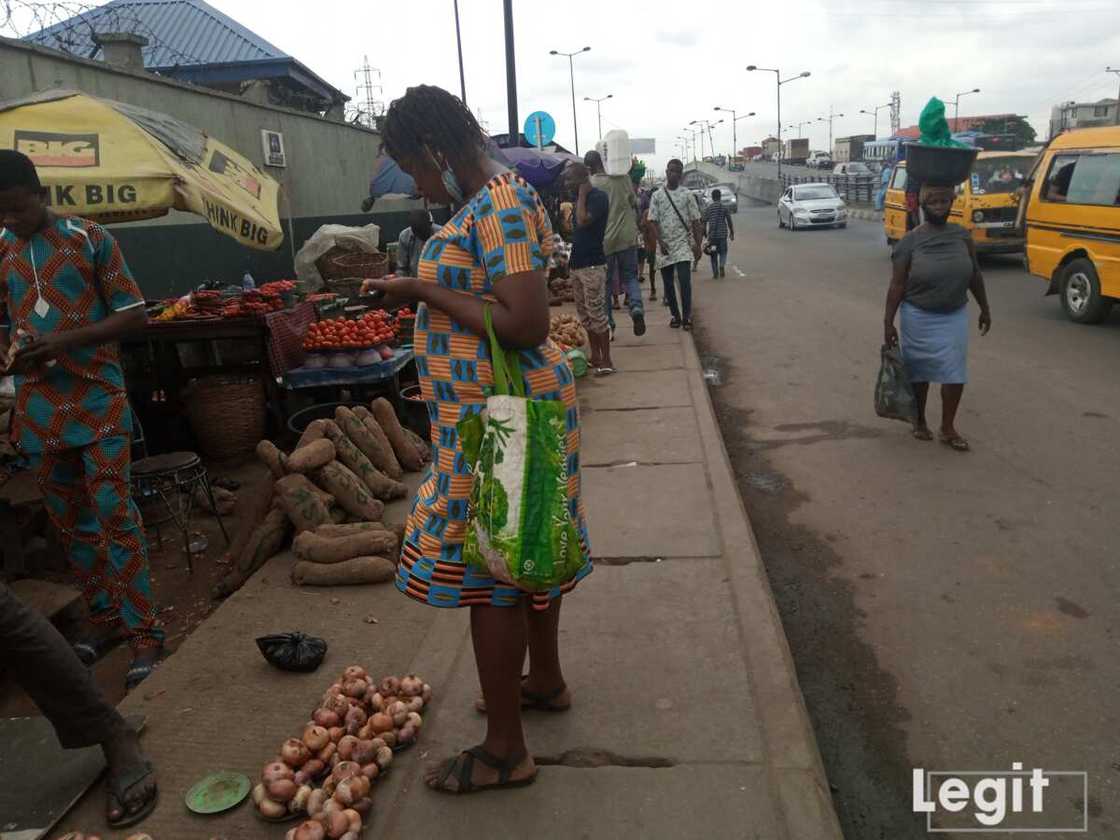
Source: Original
A buyer at the market who pleaded anonymity, stated that the prices of goods in the market is a clear indication of how inflation is affecting Nigerians.
“Vegetables are expensive and quantity reduced, cowhides (ponmo) is expensive, fish is expensive, turkey is expensive, chicken is expensive even beef is very expensive; the present cost price of foodstuff items in the market is worrisome. It is scary and one that leaves the average earners groaning because it is beyond one’s monthly budget. It is tasking because as a woman and a housewife you become an accountant by force. You have to calculate how to pay a lot of bills in the house with your man and then how to make sure there is something to fall back on.
“Cost of living is high and the quality of the goods that are a bit affordable in the market now is very low; the goods that are sold in the market are no longer of high quality and the branded ones that are of high quality are very expensive, one that is beyond the reach of the low income earners.
“Inflation is affecting us, as we feed for survuival not for healthily. You pay fees, you pay rents, you pay bills of so many things in the home, you send cash to others within and outside the family. It is not easy anymore. We are suffering in this country. Surviving in Nigeria ia getting harder by the day; If one is not careful, one will spend all the cash with just a visit to the market, because food items have become gold now,” The mother of two stressed.
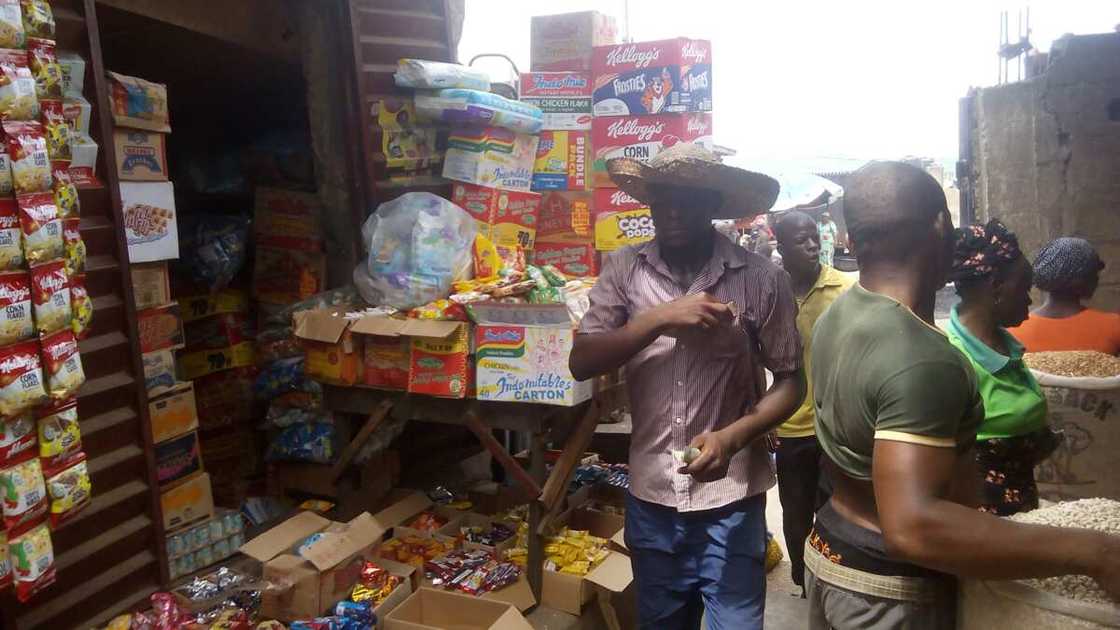
Source: UGC
Another buyer at the market who was seen checking out the cost price of provisional items, expressed concern over the current state of the economy resulting into inflating price of goods.
He said: “I am deeply worried because the current state of the economy showed how inflation is affecting us all in Nigeria. In fact, I am confused as to where we are heading to in this country. Loss of jobs daily, unemployment rate is high. A lot is happening in the country ; here and there and now the standard of living is very high. High rate of crime in daytime and low resources as some businesses are crumbling.
“In Nigeria now, we are experiencing an inflation driven cost of living. We do not have more money to purchase goods, we are managing the little cash coming in. For some persons, income is declining and others, it is stagnant. Now, if you buy the items in bits, you spend more and if you purchase the items in large quantities, it is more expensive but would carry on for a long time in the home.
“Provisional items are very expensive now. a dozen of detergents that cost N500 before, have risen to N600 and N700 upwards while a dozen of some diary milk that cost N300 and N400 before, now sells from N500, N600 and N700 upwards. A dozen of tissue papaer sells from N600 before, but now, it cost N700 upwards as the ones of low quality sells from N600. Goods that were affordable before have increased in recent times. Bath soap, lundry soap, diary milk, detergent and even tissue paper have increased by three to five percent. We have to cut spending on things that are not needed; it is so frustrating as expenses is on the rise now. The times are getting tougher but we are certain that things will get better in due time.”
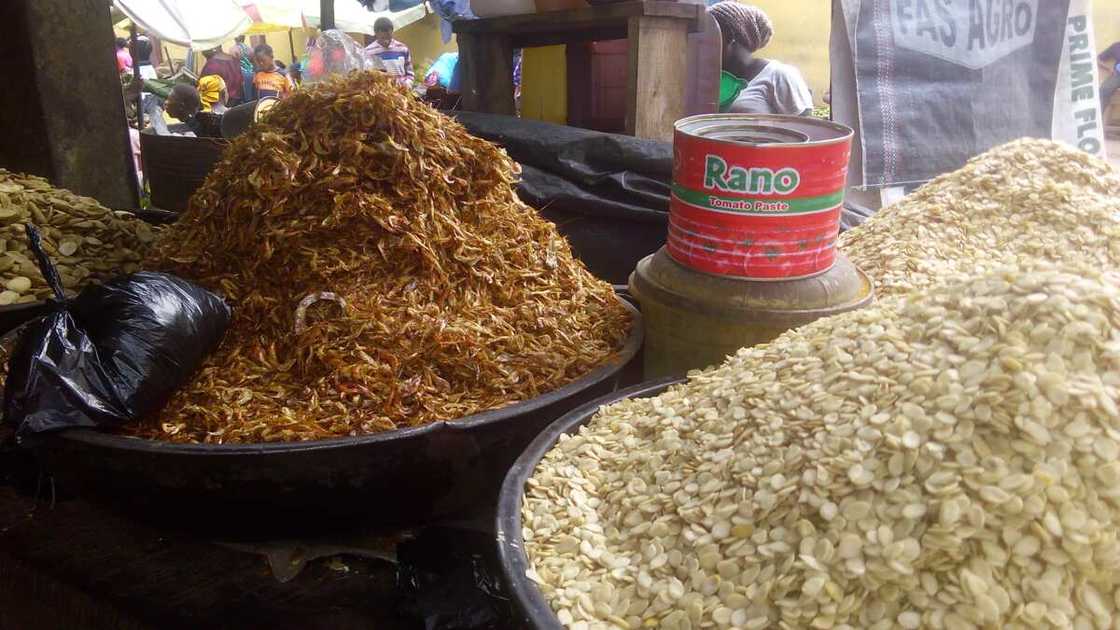
Source: UGC
When inflation is on the rise, the foreign exchange rate will be affected as there will be reduction in the purchasing power of each unit of currency which leads to soaring prices of goods.
Foodstuff dealer at the market lament over the drop in the purchasing power of buyers occasioned by the present economy.
“The naira is weak and this causes more harm than good to source of livelihood of many, food prices and the economy at large. The buyers are affected because the inflating price of goods affect their level of income too. When there is inflation, the cost price of everything in the market rises and if the income does not rise, then there will be a drop in the sales level as well as quantity of purchase by buyers. The demand is high but the resources low.
“Some traders are not making good sales again. Their shops and stalls are scanty. They manage to purchase goods to fill their shops and stall so they can be able to meet up with daily needs at home and in the market. It is not easy at all; all goods are very expensive in the market now.
“Buyers are lamenting, so traders too. Some of our customers have lost their jobs and the ones that still come to patronize us, lament low income because some companies are still planning to lay off staffs due to the present economic situation.
“The price of foodstuff items like ogbono is still very high, but the new development has led to the increment in the cost price of egusi and crayfish; the two items were a bit affordable in previous weeks but now, they are increasing gradually. Inflation is affecting Nigerians as the cost price of goods affects their purchasing power,” Isiaka, a trader who hailed from the northern region of the country informed.
As the cost price of goods in the market rises daily, patronage drops further. For goods like yam and some fruits, they are expensive because they are not in season and some are out of season completely. But for perishable goods like tomato, it is very expensive.
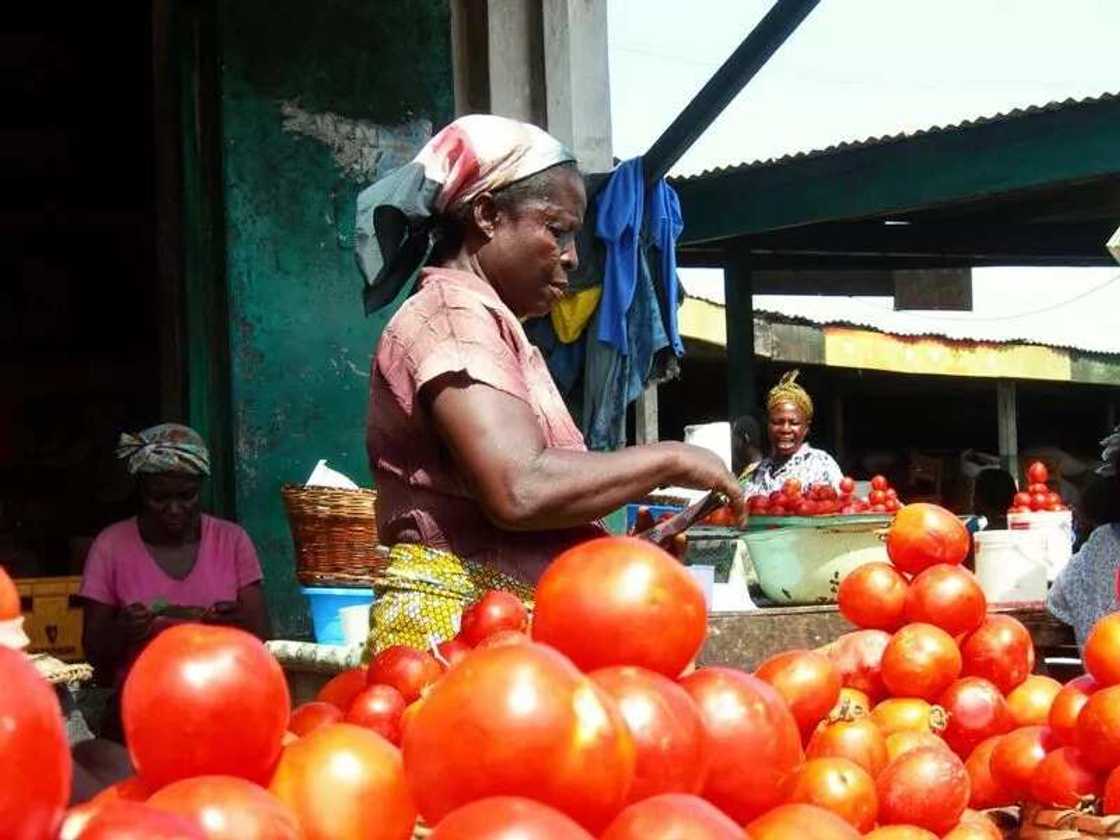
A perishable seller at the market revealed to our correspondent how inflation is affecting buyers and cost price of perishables now.
The trader opined thus: “Tomato is very expensive now in the market and this is due to seasonal factors and insecurity in the states where they are grown. Farmers are scared for their lives and this is affecting food items and their availability as well as the supply level.
“Buyers keep saying; there is no money, they are complaining daily. Sales this period is very poor because the tomato that is in the market now is the watery one, not the Hausa tomato that is very strong and thick when processed for cooking. This is making business very dull for us in the market now; buyers purchase the fresh tomatoes in low quantity and then mix with tomato paste.
“Inflation is affecting everyone in the country. If your finance is not affected then your source of livelihood is affected. A bag of pepper sells from N10,000 upwards while a bag of onion sells from N10,000, N12,000 and N15,000 upwards depending on the size of the bag as a basket of tomatoes that cost N5,000 before, has risen to N10,000 upwards while pepper and onion are still offered for sale at reasonable prices as you can get onion from N50 upwards and pepper from N100; yet we do not make good sales after daily business activity.”
A food seller at the market who was seen trying to get a good bargain of beef, disclosed to Legit.ng how inflation has affected her business.
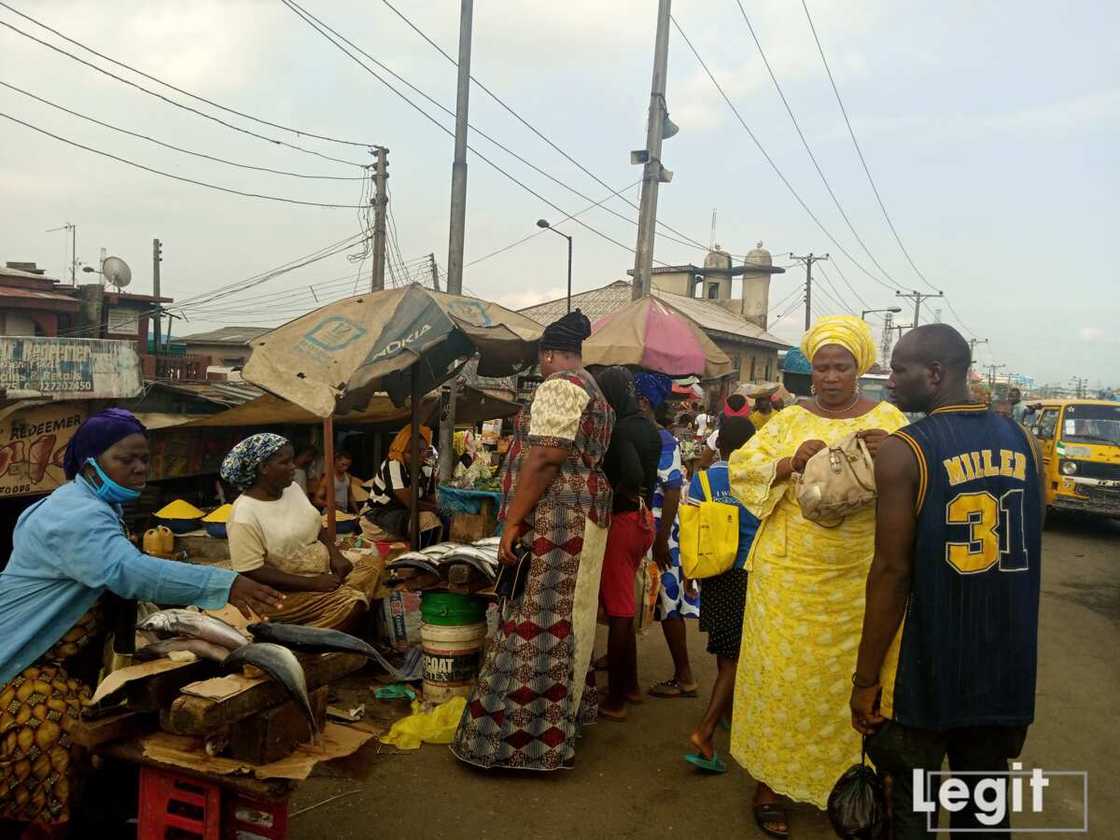
Source: Original
“I have a shop not far from my home where I sell cooked foods but for some time now, I record low profit and spend more money for the items I used in preparing meals. When it became a usual experience, I decided to step out of my shop. I sell at the bus stop not far from my home; it was still the same issue.
“It became worse now as the portion I serve for sale is very small and customers are not happy with it. Before, I purchase bag of rice, half bag of garri and beans small portions but due to the situation of things now, I purchase paint bucket of rice and garri only as I don’t sell beans, spaghetti and plantain.
“Now, with the inflating price of goods, the quantity of beef I purchase is very low due to the high cost of beef now and I no longer purchase fish. I sell goat meat and mixed with small amount of beef for the rice or cow hides. The cost of preparing good and healthy meals is higher now than before.
“My business has been affected and now what I do to stay in the business and survive as a married woman, is take the food to building locations and close the shop for now. I sell jollof rice or coconut rice and sometimes mixed with swallow like eba and fufu. I cannot sell items like semolina and wheat because they are too expensive for me to prepare, resell and make profit,” The food vendor stated.
As the government continues in its quest to secure the lives and properties of the people while tackling insecurity, the fight against coronavirus pandemic is still ongoing even as Nigerians groan over the worsening state of the economy.
INTERVIEW: My wife's friends mock me because of this business - Periwinkle seller via Legit TV
Source: Legit.ng


